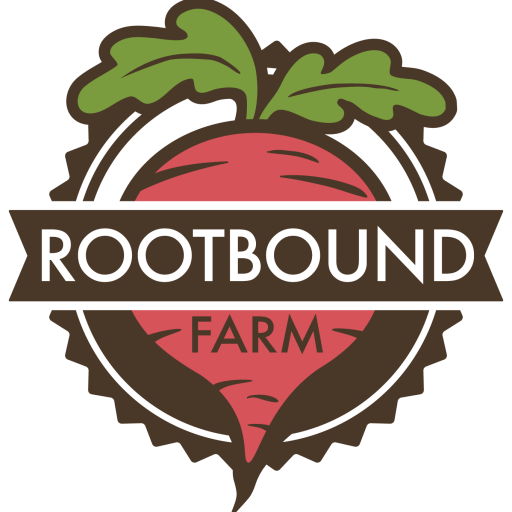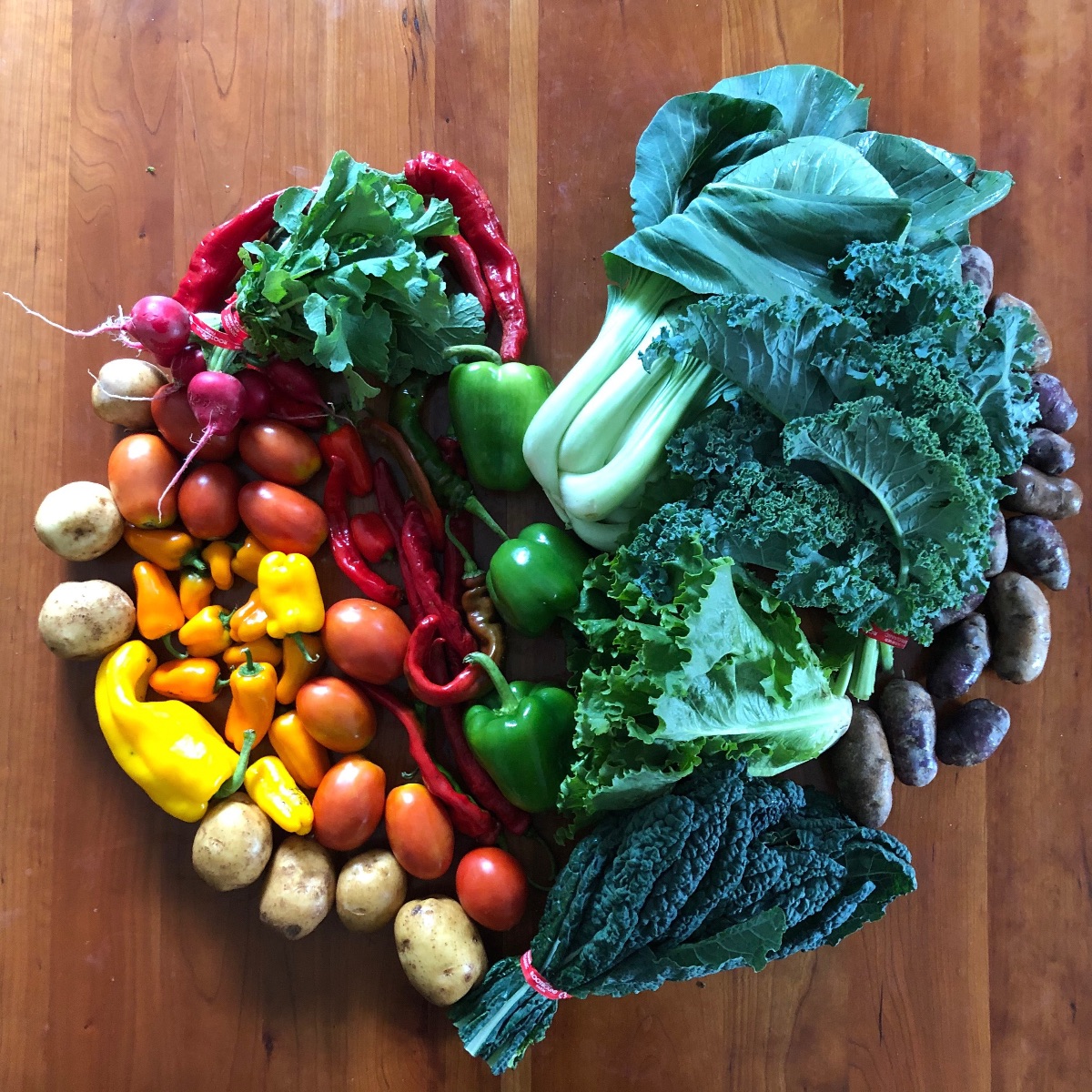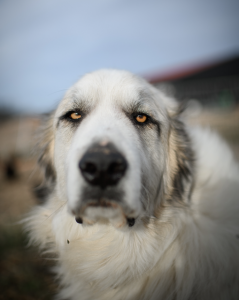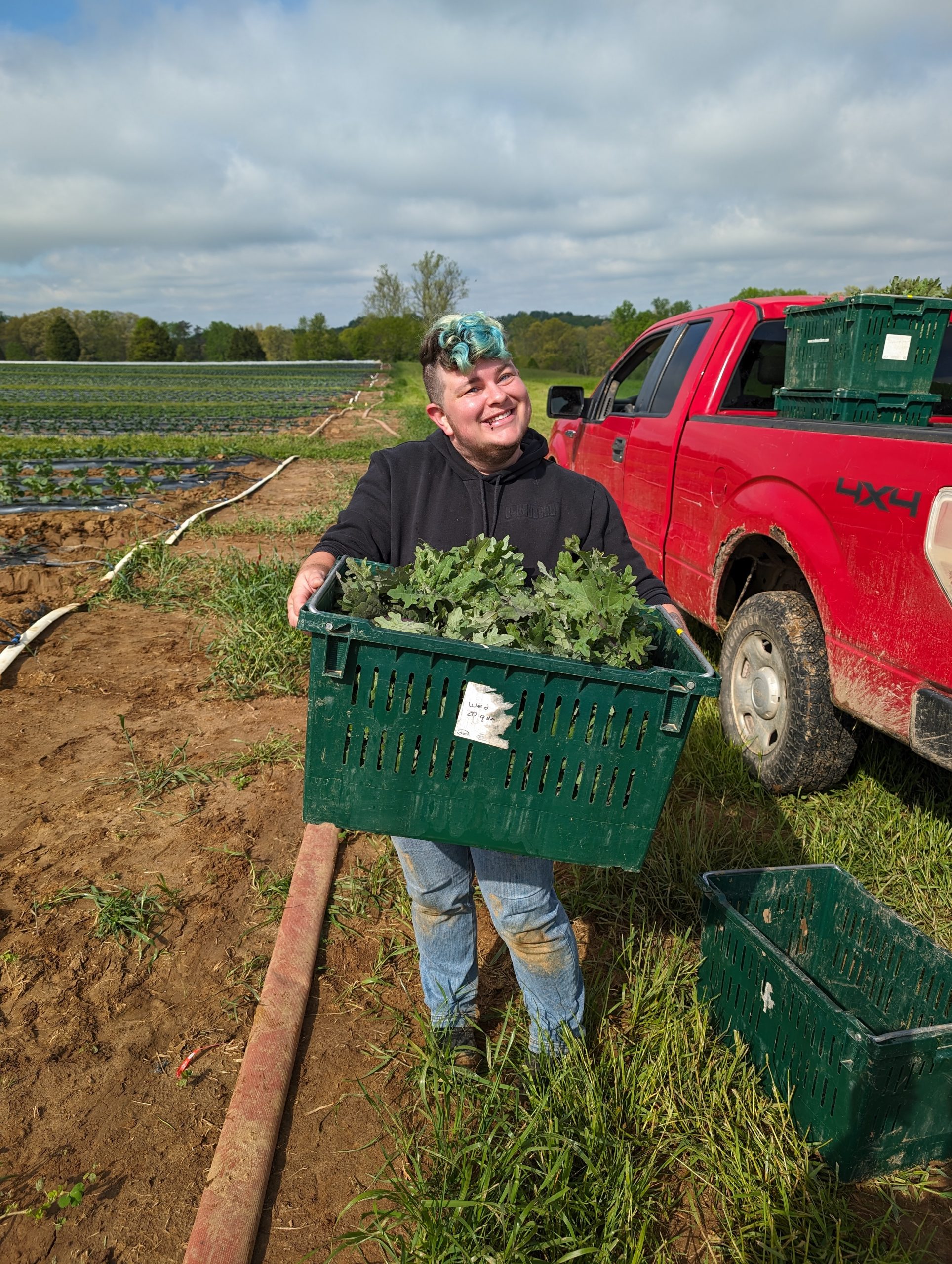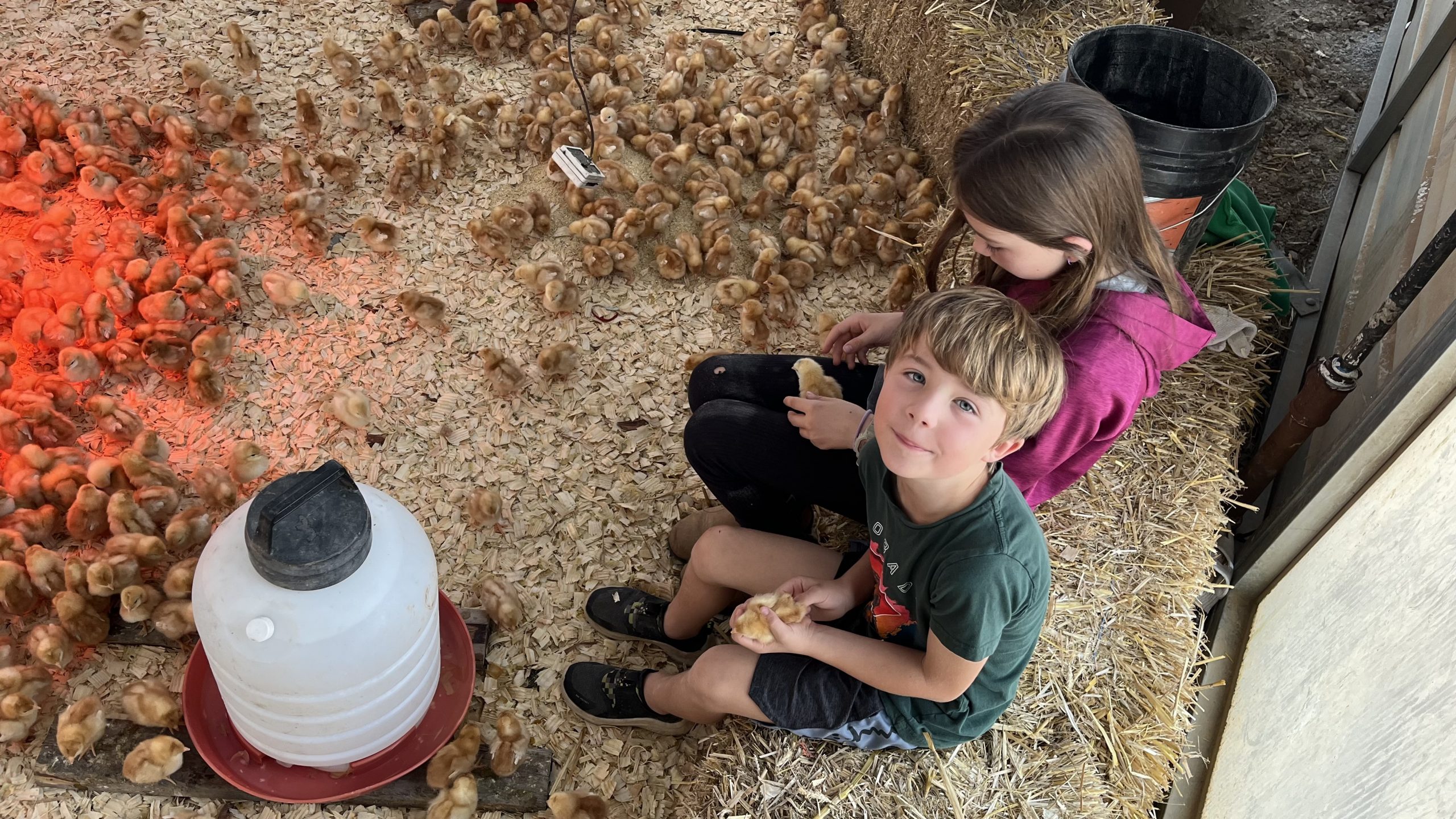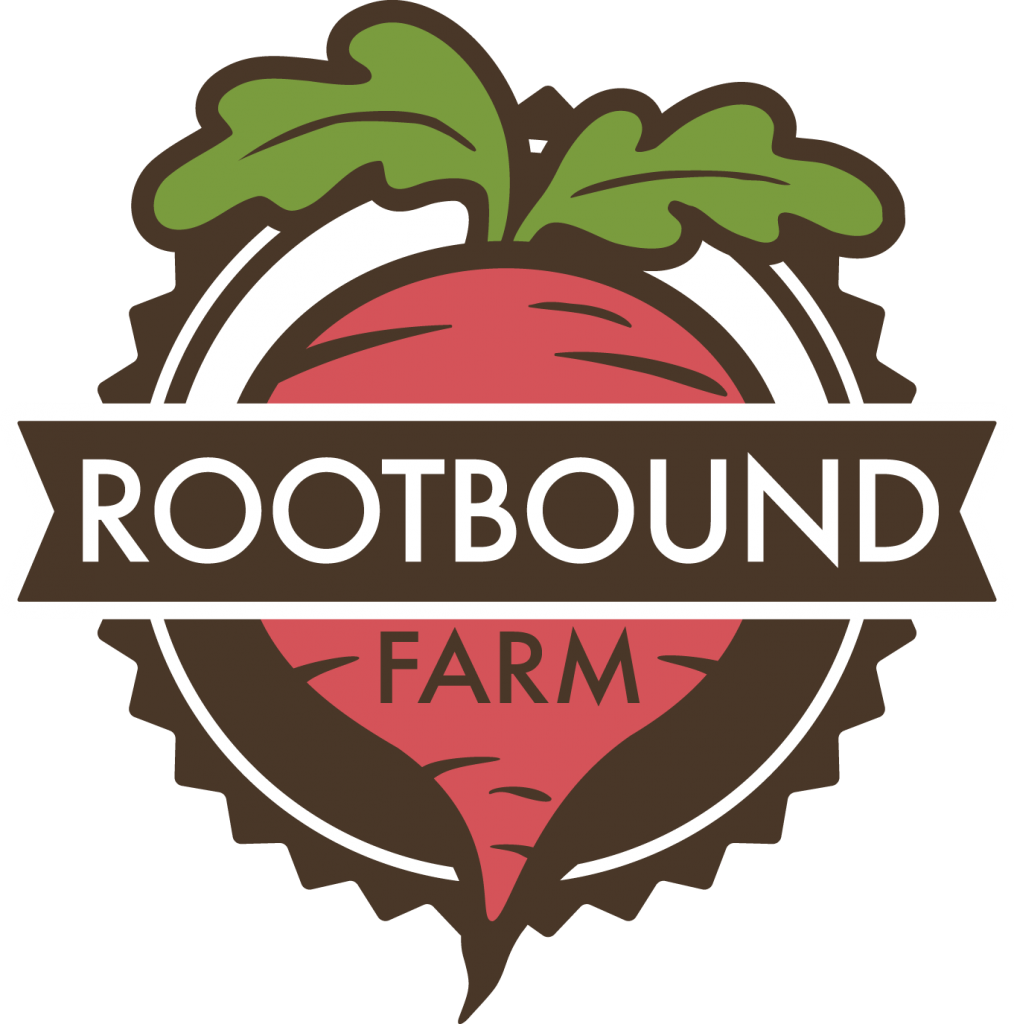A Year in Review:
Where to start? 2020 was certainly a year without parallel in most of our lifetimes. It has been disorienting and heartbreaking to see so much loss of life and livelihood throughout our community. And in a year full of contradictions, we have experienced immense hope and opportunity for the future, especially in our little corner of the food and farming world.
At Rootbound Farm we felt uniquely privileged to weather this year on the land, with the opportunity to grow nourishing food for our community. In 2020 it was extra challenging and stressful to keep our staff, our customers, and our family safe and healthy. But ultimately we were fortunate to be in a business that our community turned to during these strange times. We take this trust and responsibility very seriously. With a high demand for our farm’s bounty, we were grateful to be in community with you and we never felt more humbled and appreciated in our efforts.
We found hope! Initiatives grounded in community organizing, and social justice launched, and expanded with new support:
The KY Black Farmers Fund provided more than $45,000 in grants to Black farmers across the state.
The Louisville Community Grocery ended this year with a success after a membership-raising campaign.
Leadership from Change Today, Change Tomorrow and Dare to Care helped bring thousands of pounds of fresh produce from our farm, and many other farms, to families across the state.
Our partnership with New Roots Fresh Stop Markets expanded and brought sliding scale CSA shares to 350 families/week from May through October.
The year of the chicken! In January 2020, 300 new baby chicks arrived on the farm. Five months later we were able to introduce eggs to our list of farm products. It had been a longterm goal to add laying hens – both to offer more protein options, and also to help us maintain, and build soil fertility in our pastures and on our crop fields in the off-season. We love our little dinosaurs, so last month we brought another 800 baby chicks to the farm. This will bring our egg-laying flock to a little over 1,000 birds for 2021. We will also be starting our first tree-range meat chickens later this spring. Look out for our organic pastured chicken to be available with your CSA in May 2021.
Twister! Our neighbor got a video of an actual funnel cloud tearing through the farm back in June 2020. The chicken house was picked up, and it sailed for about 50 yards. We had some damage to tomato trellises, but by far the biggest challenge was losing power for 3 days, at a critical time of year for keeping freshly harvested produce chilled in the walk-in cooler. I think we bought most of the ice in Oldham County, and filled up the cooler with over 2,000 lbs of ice. It actually worked, and the temps stayed low until our power came back on 3 days later. The lesson? Add “back-up generator” to the ever expanding farm shopping list.
A year of the dogs. This year we brought two new puppies to the farm, bringing our resident dog team to 5 – which I’m telling you, is a lot of dogs! Last winter we experienced record high numbers of coyote attacks on our livestock, so we knew we needed to shift and bring more guardian dogs to the farm. Juno and Rosie are Kangals, a new breed for us, known for their boldness in facing down predators. They’ve joined our veteran Great Pyrenees’, Gaia and Ghost. Introducing two new puppies has stretched our patience but we love them, and the role they play in our farm ecosystem. We’re now entering the time of year when young male coyotes are off on their own, claiming new territory, and the coyote pressure/presence really ramps up. We’re hopeful the new dogs are as keen to protect their flock as they are to protect the boots they’re constantly stealing off the back porch. The goal with livestock guardian dogs is not that they “fight” coyotes – the goal is deterrence, a non-lethal control method where coyotes move along deciding there is an easier meal elsewhere.
Ice Age? In May, we experienced a record late freeze with overnight temperatures reaching into the mid-twenties. That’s weird! In fact, it had not happened in over 100 years of weather records for Oldham County. In our region we usually have our last hard freeze in mid April, and at worst a light frost the first of May. This year’s hard freeze wiped out a lot of crops, but we were able to quickly replant most. The only crop that took a lasting impact were our potatoes, and thought we had them for most of the season, it was in less quantity and variety than in the past. Other than that anomalous event, we enjoyed a relatively favorable weather year for farming.
Strawberries! We had our first ever strawberry harvest, with healthy plants that gave us 3 weeks of organic berries for the CSA, and farmers markets. We had challenges – the deer ate most of the plants to the ground in March, and the freeze caused some blossoms to drop – but we were encouraged by the crop’s relative success, and are ready for an even better strawberry season in spring 2021.
Year Round Farming and Fresh Food. Years ago, as strictly veggie farmers, we cherished that the endless exhausting days of the growing season were balanced by a couple months of shorter days, lower blood pressure, and time to read, research, and reflect. While a touch of that still exists, ever since we got into raising sheep 6 years go, the winter “off-season” has filled up more, and more with days of daily chores of feeding hay, busting frozen water, and the whirlwind of lambing that begins in February. We’re also finishing this year with a renewed sense of the purpose, and opportunity we have to play in providing good, organic food to our community, and the imperative to do that more than just 6 months a year. As such, we’re committing in 2021-2022 to the goal of year ’round availability of fresh produce. This fall we launched our first ever, Fall CSA at the end of this season. We were inspired by the demand with over 200 families joining us for 4 more weeks of fresh produce lasting late into November. And we’re still harvesting, and packing produce even today, fulfilling farm webstore orders. We’ll be installing our newly purchased high tunnels in early February, and next year we’ll have a little over 20,000 square feet of protected growing space ot help us extend the season not just with our storage crops, but also with fresh lettuce, spinach, and greens. The year-round addition of eggs has encouraged us to keep the webstore open for deep winter orders. That has been very encouraging as well to have families still eating our farm products in the deep of winter.
Book of the Year: Braiding Sweetgrass by Robin Wall Kimmerer
Recipe of the Year: The Sweet Potato Fry. This utilitarian, anti-oxidant-packed, heavy hitter became a go-to for simplicity, AND it was popular with our 2 year old – our resident picky eater.
Thank you for your friendship, and support in 2020. Here’s to a new year, full of possibility, and hope.
Sincerely,
Bree, Ben, and the whole team at Rootbound Farm
